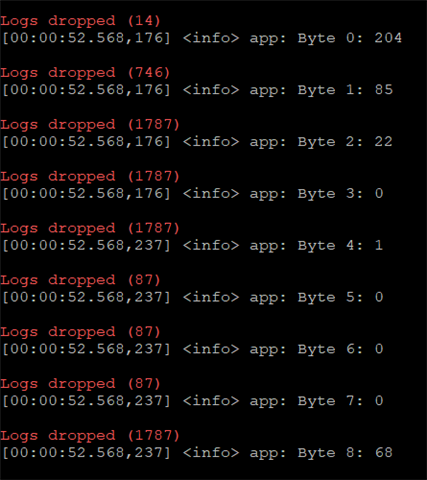Hello, I'm running the nRF5 SDK's ATT_MTU throughput example and I want to check that the data sent by the 'tester' (nRF52832 in my case) is effectively received by the 'responder' (nRF52840 in my case).
I can check the data sent by the tester but don't see where the data received by the responder can be found in the code.
Anyone that can help me, or tell what I need to do to find it? Thank you very much!



